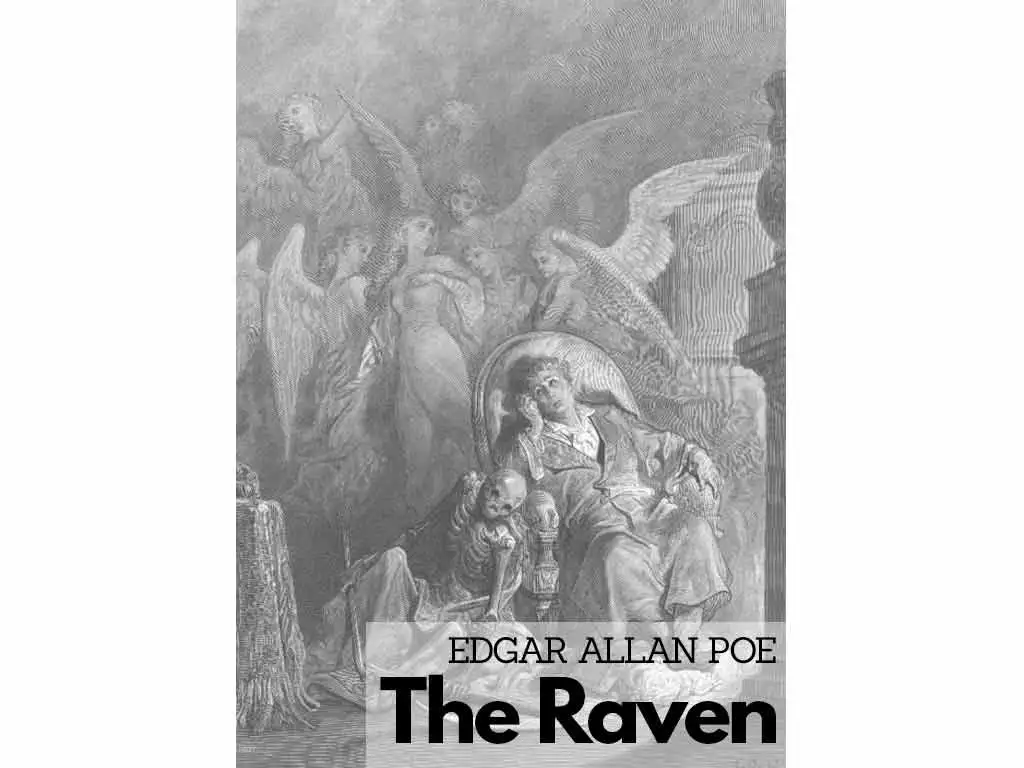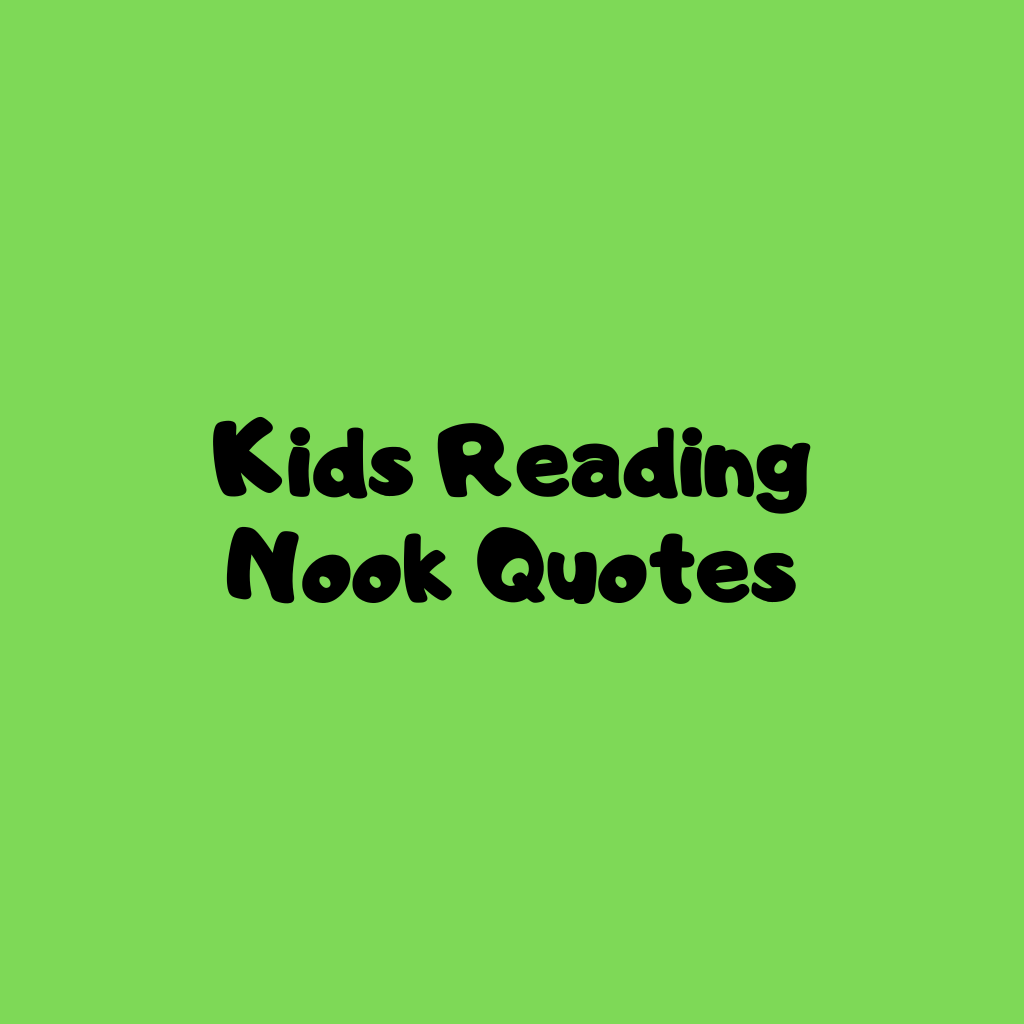This post may contain affiliate links which means we might earn a small commission if you decide to make a purchase through them (at no extra cost to you). Need more info? Click Here
The Raven is a timeless gothic-style poem that was written by Edgar Allan Poe in 1845. The Raven follows the story of an unknown grief-stricken narrator who is mourning the death of his love, Lenore. Although the poem was initially rejected, it went on to become one of Poe’s most famous poems.
After its publication, The Raven became incredibly successful, and Poe went on to publish many books containing collections of his poetry and other works. Unfortunately, the success of the poem didn’t translate into financial success for Edgar Allan Poe. He later said, “I have made no money. I am as poor now as ever I was in my life – except in hope, which is by no means bankable”.
Download The Raven Edgar Allan Poe PDF down below to explore this dark tale of loss and despair.
The Raven By Edgar Allan Poe PDF Download
You can download your free copy of The Raven PDF by clicking the button below. Depending on what device you are using, the PDF book will either open in a new tab or download to your device.
If you would like to download a copy of The Raven poem to your device, you can right-click the button and choose “Save As…”.
The Poem
The Raven
EDGAR ALLAN POE
Once upon a midnight dreary, while I pondered, weak and weary, Over many a quaint and curious volume of forgotten lore— While I nodded, nearly napping, suddenly there came a tapping, As of some one gently rapping, rapping at my chamber door. “’Tis some visiter,” I muttered, “tapping at my chamber door— Only this and nothing more.” Ah, distinctly I remember it was in the bleak December, And each separate dying ember wrought its ghost upon the floor. Eagerly I wished the morrow;—vainly I had sought to borrow From my books surcease of sorrow—sorrow for the lost Lenore— For the rare and radiant maiden whom the angels name Lenore— Nameless here for evermore. And the silken sad uncertain rustling of each purple curtain Thrilled me—filled me with fantastic terrors never felt before; So that now, to still the beating of my heart, I stood repeating “’Tis some visiter entreating entrance at my chamber door— Some late visiter entreating entrance at my chamber door; This it is and nothing more.” Presently my soul grew stronger; hesitating then no longer, “Sir,” said I, “or Madam, truly your forgiveness I implore; But the fact is I was napping, and so gently you came rapping, And so faintly you came tapping, tapping at my chamber door, That I scarce was sure I heard you”—here I opened wide the door— Darkness there and nothing more. Deep into that darkness peering, long I stood there wondering, fearing, Doubting, dreaming dreams no mortals ever dared to dream before; But the silence was unbroken, and the stillness gave no token, And the only word there spoken was the whispered word, “Lenore?” This I whispered, and an echo murmured back the word, “Lenore!”— Merely this and nothing more. Back into the chamber turning, all my soul within me burning, Soon again I heard a tapping something louder than before. “Surely,” said I, “surely that is something at my window lattice; Let me see, then, what thereat is and this mystery explore— Let my heart be still a moment and this mystery explore;— ’Tis the wind and nothing more.” Open here I flung the shutter, when, with many a flirt and flutter, In there stepped a stately Raven of the saintly days of yore. Not the least obeisance made he; not a minute stopped or stayed he, But, with mien of lord or lady, perched above my chamber door— Perched upon a bust of Pallas just above my chamber door— Perched, and sat, and nothing more. Then the ebony bird beguiling my sad fancy into smiling, By the grave and stern decorum of the countenance it wore, “Though thy crest be shorn and shaven, thou,” I said, “art sure no craven, Ghastly grim and ancient Raven wandering from the Nightly shore— Tell me what thy lordly name is on the Night’s Plutonian shore!” Quoth the Raven, “Nevermore.” Much I marvelled this ungainly fowl to hear discourse so plainly, Though its answer little meaning—little relevancy bore; For we cannot help agreeing that no living human being Ever yet was blessed with seeing bird above his chamber door— Bird or beast upon the sculptured bust above his chamber door, With such name as “Nevermore.” But the Raven, sitting lonely on that placid bust, spoke only That one word, as if its soul in that one word he did outpour Nothing farther then he uttered; not a feather then he fluttered— Till I scarcely more than muttered: “Other friends have flown before— On the morrow he will leave me, as my Hopes have flown before.” Then the bird said “Nevermore.” Startled at the stillness broken by reply so aptly spoken, “Doubtless,” said I, “what it utters is its only stock and store, Caught from some unhappy master whom unmerciful Disaster Followed fast and followed faster till his songs one burden bore— Till the dirges of his Hope that melancholy burden bore Of ‘Never—nevermore.’” But the Raven still beguiling all my sad soul into smiling, Straight I wheeled a cushioned seat in front of bird and bust and door; Then, upon the velvet sinking, I betook myself to linking Fancy unto fancy, thinking what this ominous bird of yore— What this grim, ungainly, ghastly, gaunt, and ominous bird of yore Meant in croaking “Nevermore.” This I sat engaged in guessing, but no syllable expressing To the fowl whose fiery eyes now burned into my bosom’s core; This and more I sat divining, with my head at ease reclining On the cushion’s velvet lining that the lamp-light gloated o’er, But whose velvet violet lining with the lamp-light gloating o’er She shall press, ah, nevermore! Then, methought, the air grew denser, perfumed from an unseen censer Swung by Seraphim whose foot-falls tinkled on the tufted floor. “Wretch,” I cried, “thy God hath lent thee—by these angels he hath sent thee Respite—respite and nepenthe from thy memories of Lenore! Quaff, oh quaff this kind nepenthe and forget this lost Lenore!” Quoth the Raven, “Nevermore.” “Prophet!” said I, “thing of evil!—prophet still, if bird or devil!— Whether Tempter sent, or whether tempest tossed thee here ashore, Desolate, yet all undaunted, on this desert land enchanted— On this home by Horror haunted—tell me truly, I implore— Is there—is there balm in Gilead?—tell me—tell me, I implore!” Quoth the Raven, “Nevermore.” “Prophet!” said I, “thing of evil!—prophet still, if bird or devil! By that Heaven that bends above us—by that God we both adore— Tell this soul with sorrow laden if, within the distant Aidenn, It shall clasp a sainted maiden whom the angels name Lenore— Clasp a rare and radiant maiden whom the angels name Lenore.” Quoth the Raven, “Nevermore.” “Be that our sign of parting, bird or fiend!” I shrieked, upstarting— “Get thee back into the tempest and the Night’s Plutonian shore! Leave no black plume as a token of that lie thy soul has spoken! Leave my loneliness unbroken!—quit the bust above my door! Take thy beak from out my heart, and take thy form from off my door!” Quoth the Raven, “Nevermore.” And the Raven, never flitting, still is sitting, still is sitting On the pallid bust of Pallas just above my chamber door; And his eyes have all the seeming of a demon’s that is dreaming And the lamp-light o’er him streaming throws his shadows on the floor; And my soul from out that shadow that lies floating on the floor Shall be lifted—nevermore!
The Raven – Poem Summary
Edgar Allan’s Poem follows the story of an unknown man who is sitting by his fire reading a book trying to forget Lenore, his long-lost love. Suddenly he hears a know at his door. He gets up to answer it but there is no one there. Because it is after midnight and it is a cold December night, he is a little nervous but convinces himself that it’s just the wind that he heard. He hears another noise at the window and goes to investigate and suddenly a raven flies into the room.
The Raven lands on top of a statue of the goddess Athena that is above the door. The narrator begins to talk to the bird and asks his name. The Raven answers saying that his name is “Nevermore”.
The narrator is initially amused by the Raven and pulls his chair closer. In the silence, the narrator wonders if God has sent the Raven as a sign that he should forget his love, Lenore.
He begins asking the Raven more questions but the bird simply responds with “Nevermore”. The narrator becomes more and more unnerved as he speaks to the Raven and he is slowly driven mad. The poem ends with the narrator saying that his soul “shall be lifted nevermore”.
The Raven Q&A
What Is The Meaning Behind The Raven By Edgar Allan Poe?
I think that Edgar Allan Poe specifically chose the raven as the main theme of his poem because of the dark, almost gothic symbolism that it conjures. The Raven is a reflection of the narrator’s sorrow and pain at the loss of his love, Lenore.
In the poem, the narrator continues to question the Raven even though deep down he knows that the bird will give the same answer. It could be said that the Raven is helping him come to terms with the idea that Lenore is gone and that he will see her “nevermore”. When he realizes that his beloved Lenore is gone and he won’t see her again he sees the Raven as an evil, demonic entity there to haunt him.
Edgar Allan Poe himself said that the Raven symbolized “Mournful and Never-ending Remembrance” and the poem explores how sadness and grief can overcome someone to the extent that it can drive them to madness.
At the end of the poem, we are told that the raven is still in the room and his shadow seems to stretch toward the narrator. Edgar Allan Poe could be exploring the idea of how grief and sadness can stay with you. At this point in the poem, the narrator believes that he will never be happy again.
What Does The Bust Of Pallas Symbolize In The Raven?
Pallas is another name for Athena, the Goddess of Wisdom. Athena in essence symbolizes wisdom, watchfulness, protection, learning, strength, and even faith. On the other hand, the raven casts a dark shadow over the narrator. By including the symbol of Athena along with the Raven we can symbolically see the struggle between the light and the darkness or even between life and death.
Why Does The Raven Say Nevermore?
It could be argued that the Raven doesn’t actually say “nevermore” and that the narrator is just hearing those words. The narrator is struggling to come to terms with the loss of Lenore and his conversation with the Raven is actually the narrator struggling against himself. I think the narrator knew deep down that he would never see Lenore again and the Raven was a reflection of this. The Raven brings out all the feelings of loss, anger, and denial in the narrator when he keeps repeating “nevermore”.
Why Does The Narrator Become Angry with The Raven?
The narrator is in denial and he just doesn’t want to accept that his beloved Lenore is gone. He thinks that the Raven has been sent by the devil to taunt him and make him more miserable than he already is.
The Raven By Edgar Allan Poe – Narration
Conclusion
The Raven is a poem about a man who has reached the deepest depths of his grief and can’t see a way out. It’s an eye-opening read and one that is sure to make you think especially if you consider all the symbolism in the story. We hope that you enjoyed reading our ideas and interpretation of the poem! We would love to hear your thoughts. Do you agree? Disagree? Let us know in the comments below.
Other Edgar Allan Poe Books and Poems
The Cask Of Amontillado
The Tell-Tale Heart
The Fall Of The House Of Usher
The Black Cat





